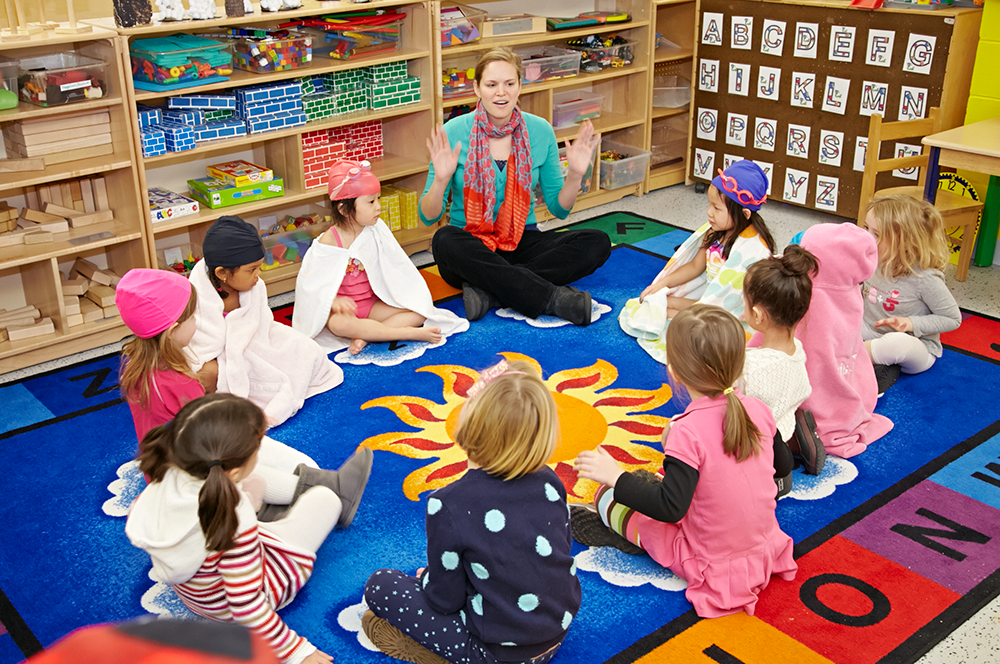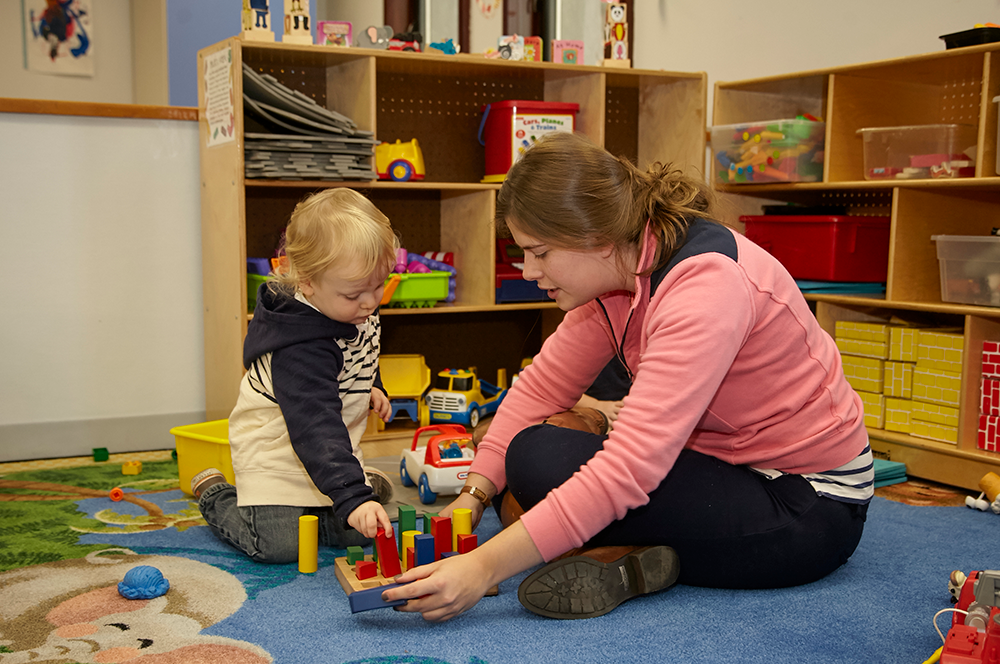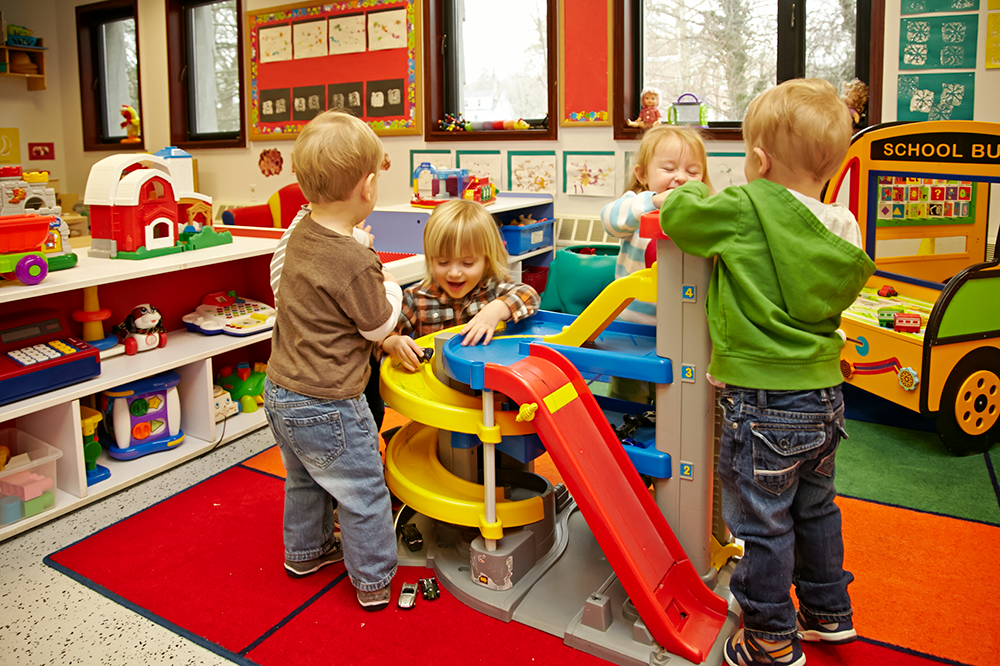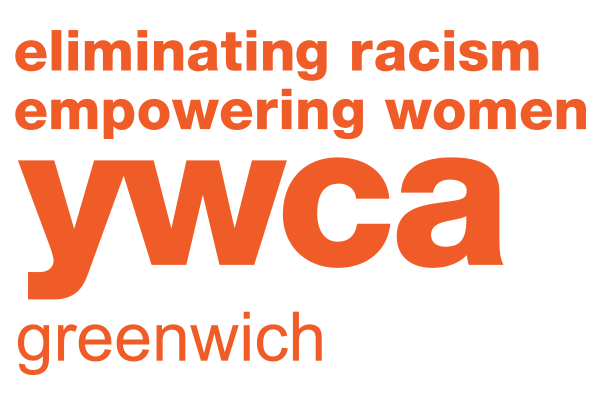Our Approach to Childhood Development and Learning

The two most important elements of the preschool curriculum are helping children get along well with others and preparing them to become enthusiastic learners.
- Our teachers are dedicated to helping children learn important fundamental concepts and enabling them to teach themselves throughout their lives.
- The curriculum accomplishes this by creating purposeful and productive play experiences throughout the day. In addition, children learn the skills necessary to socialize in a group of peers, or develop individual friendships, without the presence of a parent.

- Social/Emotional: To develop independence, self-confidence and self-control, as well as the ability to follow rules and routines, make friends and learn what it means to be part of a group.
- Physical: To increase overall coordination including large muscle (or "gross motor") skills - balancing, running, throwing and catching - and use of small muscles (or "fine motor" skills) in the hands to do tasks such as buttoning, stringing beads, cutting, drawing and writing.
- Cognitive: To acquire thinking skills (asking questions, logical thinking) that enable successful problem solving, with classroom activities that include sorting, classifying, comparing, counting and making patterns.
- Language: To use words to communicate with others, listen to and participate in conversations, and to understand the purpose of print, through recognition of letters and words, so students can begin writing for a variety of purposes.

- Social Skills: Meeting new friends and sharing cooperatively. Participation in a group activity.
- Eye-Hand Coordination: Playing with manipulatives (pegs, puzzles, lacing).
- Pre-Reading Skills: Looking at books and retelling a story. Making experience charts. Drawing a picture.
- Pre-Math Skills: Listening to music and singing. Looking at a daily calendar. Understanding number concepts.
- Negotiation Skills: Sharing, following directions, playing together, taking turns.
